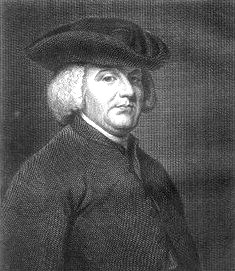| Profile | Major Works | Resources |
William Paley, 1743-1805.

English theologian, utilitarian and proponent of "natural religion",.
Educated at Christ's College, Cambridge, William Paley became Senior Wrangler in 1763, the top student in the Cambridge Tripos mathematical exam. He remained on as fellow of Christ's College, becoming tutor in philosophy in 1768. Paley's lectures, which touched on several economics-related topics, were published as Principles of Moral and Political Philosophy in 1785. Parts of Paley's book would become incorporated in the famous Tripos examination at Cambridge.
Paley's best-known work is probably his 1802 Natural Theology, a treatise on natural religion with monumental influence on 19th Century British thought, becoming required reading in all universities. It is here where Paley articulated argument of intelligent design. Paley articulated the famous allegory that stumbling upon a watch on the ground implies a watchmaker, so too does the complexity of nature imply a Creator. Paley went on to construct his argument for intelligent design behind scientific laws, thus ranging him in opposition against the 18th C. deists like David Hume.
Paley was a promulgator of the utilitarian system of ethics on the simple idea that as God is benevolent, He must desire the happiness of humans (for such sensations are present in the human animal), ergo it is a human duty to pursue happiness. By the principle of diminishing marginal utility, Paley argued that a large but poor population might have greater general happiness than a small and rich population.
Paley's natural theology inspired the Earl of Bridgewater to establish, through the Royal Society, the famous publication series of eight volumes, known as the Bridgewater Treatises, to explore and promote the conciliation of natural science and religion. Thomas Chalmers and William Whewell contributed the first and third book of that series respectively. Charles Babbage's contribution, putatively titled as the ninth, was not commissioned but an independent effort..
William Paley was the great grand-father of Mary Paley Marshall.
|
Major Works of William Paley
|
|
HET
|
|
Resources on William Paley
|
All rights reserved, Gonšalo L. Fonseca
